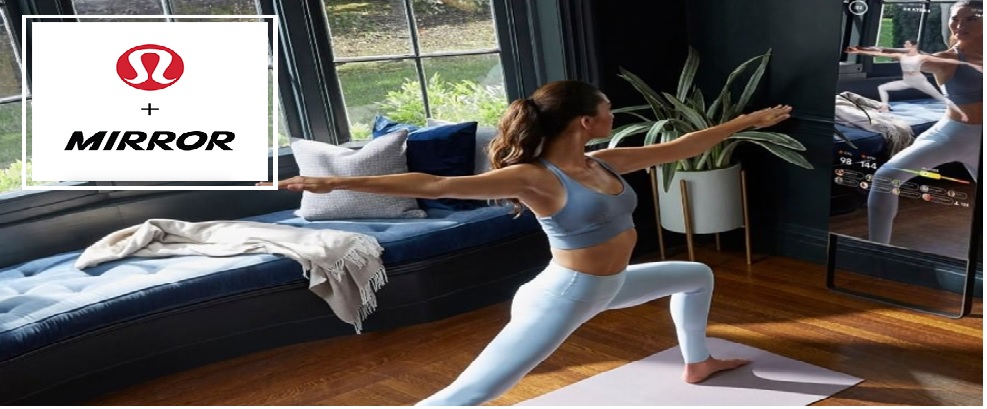
Mirrors have been around in some form since the beginning of human civilization, and today they remain a vital part of our lives. Mirrors are useful for myriad reasons – from providing us with a reflection to help us groom ourselves and make sure we look presentable, to being used as tools for scientific study.
Today’s modern Mirrors can be made from a variety of materials, including glass, metal or plastic. Due to their reflective properties, Mirrors can also be used as decorative pieces in homes or businesses – acting as an elegant addition to any room. Additionally, some Mirrors come with added features such as LED lighting or distortion-free designs that can give them extra functionality.
Mirror Meaning
Have you ever felt like the reflection staring back at you wasn’t quite the same as your true self. which is the idea that looking into a Mirror can bring about deep reflections on our sense of self and identity. By examining different interpretations of this phenomenon, we can gain insight into how our thoughts and feelings shape our perception of ourselves.
Mirror Types: Reflective And Non-Reflective
Ancient Mirrors were not just a tool to help us check our reflection, they had a more complex purpose. we will explore the fascinating story of Mirror history and their significance in ancient cultures. From the myths surrounding them to the materials used for their construction, we will discover why ancient mirrors were so much more than just a way to see our reflection.
Mirror Modern Uses: Decor And Technology
Mirrors have been a part of homes since ancient times and are iconic in their design and purpose. Today, the modern uses for Mirrors continue to expand, making them a perfect choice for both decorative and technological purposes. From sleek and modern designs made from unique materials like metal and acrylic, to high-tech features like lighted makeup Mirrors with built-in features for applying makeup with precision – there is something for everyone.
Mirror Benefits: Self Reflection
Mirror Benefits: Self Reflection is an article which explores the incredible power of looking into a Mirror and reflecting on oneself. We often underestimate the impact of our own reflections, but recent studies have shown that self reflection can have a huge influence on our lives. Taking time to look in the Mirror and understand yourself better can actually help you to improve your life.
Mirror Cultural Significance: Symbolism And Rituals
Mirrors have been used by humans since ancient times and they are considered to be powerful symbols of life and transformation. In various cultures, Mirrors have been associated with rituals and ceremonies, often carrying deep symbolic meanings that go beyond the reflection of light. Throughout history, Mirrors have been used for a variety of purposes ranging from spiritual practices to daily life activities. From ancient Eastern practices to Western folklore, Mirrors have always held a unique cultural significance that has shaped our lives in many ways.

Mirror Features, Advantages
A Mirror is a timeless and essential piece of home decor. Not only can it be used to check one’s appearance, but it can also create the illusion of more space and brighten up a room. Mirrors come in all shapes and sizes, making them easy to customize for any space. They are available in many materials, such as glass, wood, metal or plastic. One of the great advantages of Mirrors is their ability to reflect light, making a room appear larger and brighter. This can be especially useful in small or dark spaces. Additionally, Mirrors offer an interesting way to add depth and texture to your home decor without taking up too much space. Whether you’re looking for something sleek and modern or classic and timeless, there is sure to be a perfect Mirror for every taste and budget.
Mirror Pros And Cons
Pros:
- Mirrors allow us to see our reflection and check our appearance.
- Mirrors can reflect light and make a room seem brighter.
- Mirrors can be used to create interesting optical illusions.
- Mirrors can create an illusion of space in a small room.
- Mirrors are relatively inexpensive and easy to install or move around in a room.
Cons:
- Excessive use of Mirrors may cause glare or unwanted reflections in some environments, such as offices and galleries.
- Some people may find their own reflection distracting or uncomfortable when looking in a Mirror for long periods of time, especially if they are not happy with their appearance.
- Mirror surfaces easily become smudged and dirty, requiring regular cleaning and maintenance to keep them looking good and functioning correctly.

Conclusion: Mirror’s
Mirrors have been an integral part of our lives for centuries, playing a role in both daily routines and ancient superstitions. From the time of ancient civilizations to the present day, Mirrors have made an impact across cultures, religions, and societies.
The Mirror is an important tool used by humans as a way to reflect on their own identity, to understand the world around them and to connect with others. It has played an integral role in our society since ancient times and continues to be a reflection of our culture. By understanding its history and psychological implications, we can gain insight into how this simple object has shaped us as individuals and as members of the larger society.


7 comments
Your point of view caught my eye and was very interesting. Thanks. I have a question for you.
Your blog offers a superior tool for anyone interested in knowing more about these topics.
Your composition has a great flow; I appreciated every word of it.
I’ve been struggling with this issue, thanks for providing some clarity.
I don’t think the title of your article matches the content lol. Just kidding, mainly because I had some doubts after reading the article.
Can you be more specific about the content of your article? After reading it, I still have some doubts. Hope you can help me.
Can you be more specific about the content of your article? After reading it, I still have some doubts. Hope you can help me.